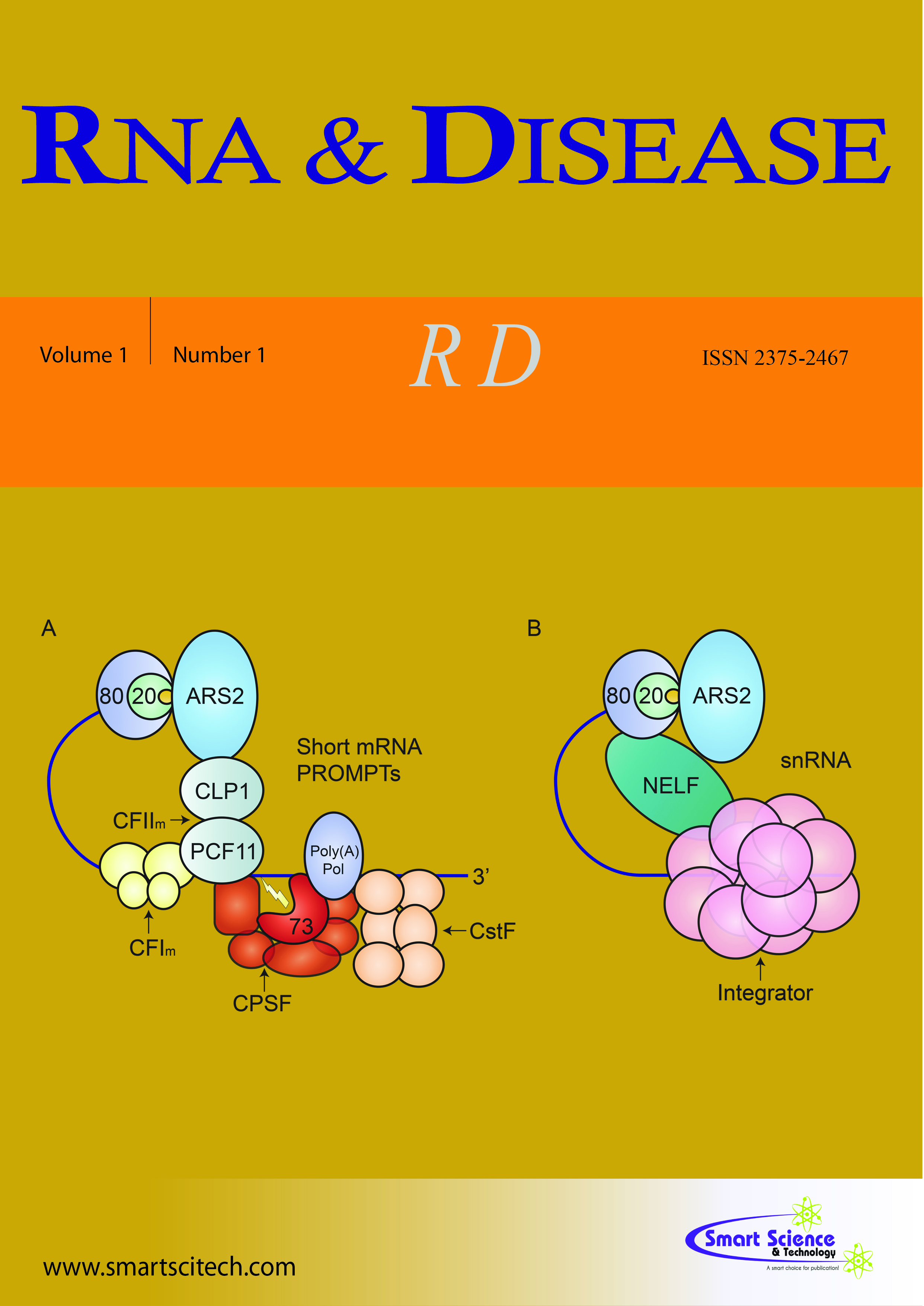Understanding the role for miRNA in human leukemia
DOI: 10.14800/rd.540
Abstract
The biological function of short non-coding RNAs known as micro RNAs (miRNAs) is unravelling to uncover a complex arrangement within every cell whereby they modulate most cellular responses. There has been much investigation as to the influence of miRNA on cell signalling processes and their cellular effects. Moreover, recently miRNA have been implicated in both physiological responses, as well as having critical roles in a variety of diseased states. The effects of these unique biochemical regulators are often subtle, but decisive with regards to a cell’s pathophysiology and disease. Researchers have investigated both the regulation of signalling pathways by miRNA, but also the regulation of miRNA generation processes by signalling steps themselves. There exists an interesting interrelationship whereby miRNA can reinforce a cell’s signalling effects. Thus miRNA have a role in normal cell physiological functioning. Aberrant miRNA generation would therefore lead to unruly signalling activity through which disease often results from such dysregulation. We will review the roles for miRNA here with emphasis on their function in human leukemia. Better understanding of these mechanisms that underlie pathologically-relevant signalling alterations that create cancer or are involved in cancer chemotherapy-resistance, will lead to better targeting and treatments for not only leukemia, but all relevant cancers.











